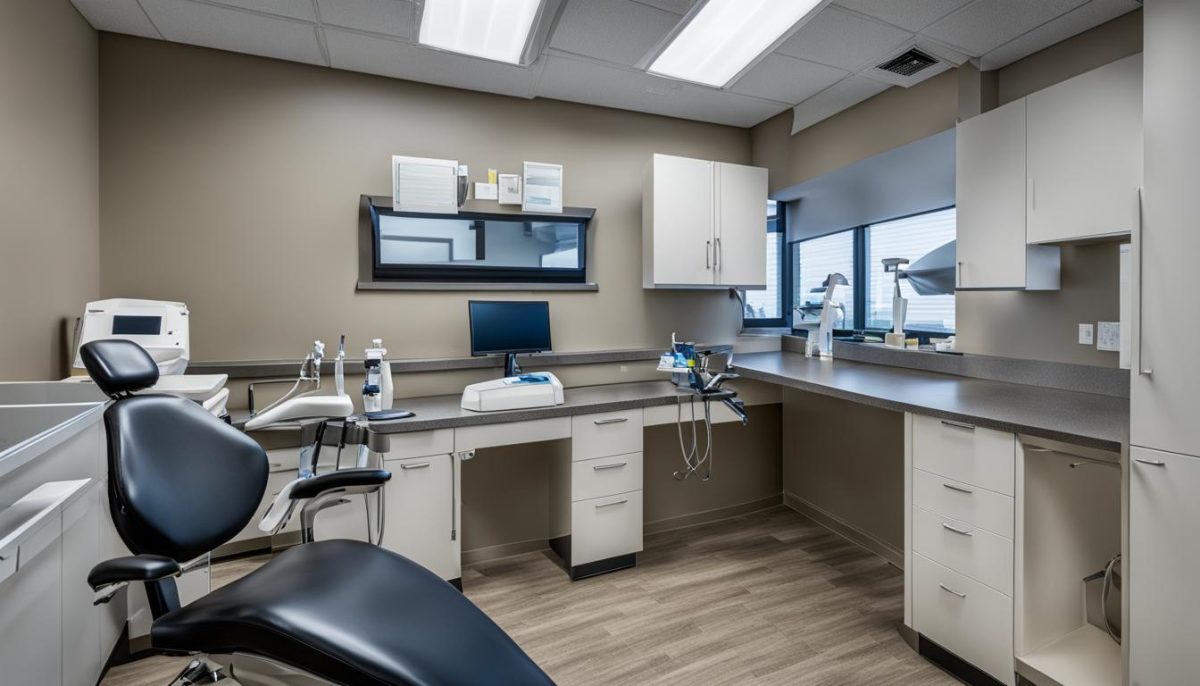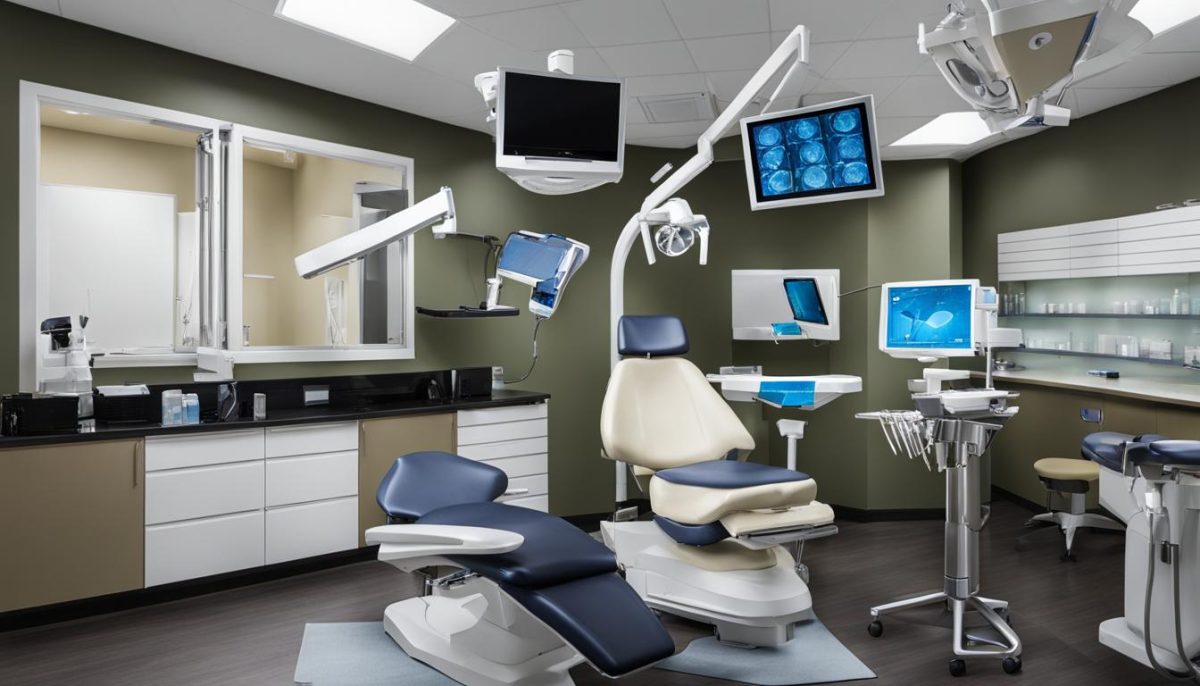News
How to Start a Dental Practice Business: Essential Steps for Launching a Successful Dental Practice in Australia
Welcome to our guide on starting a dental practice business in Australia. Whether you’re a seasoned dentist or a recent graduate, venturing into practice ownership can be an exciting and rewarding endeavor. However, it requires careful planning and consideration to ensure a successful launch. In this article, we will provide you with essential steps and insights on how to start a dental practice and navigate the challenges along the way.
Key Takeaways
- There are different options for practice ownership, such as buying into an existing practice, purchasing a whole existing practice, or setting up a new practice from scratch.
- Decide whether to rent or buy your practice premises, weighing the pros and cons of each option based on your specific circumstances and goals.
- Understand your loan options, including the true cost of a loan, and work with a financial specialist to guide you through the process.
- Prepare a comprehensive pre-loan checklist, gathering all necessary financial information before applying for a loan.
- Build a team of specialists, such as a finance expert, legal experts, and consultants, to support you throughout the practice setup process.
- Evaluate your personal readiness for practice ownership, considering factors like working independently and the responsibilities of a practice owner.
Three Options for Practice Ownership
When it comes to starting a dental practice, there are three distinct options for practice ownership that you can consider. Each option has its own advantages and considerations, so it’s important to carefully evaluate which one aligns best with your goals and circumstances. The three options for practice ownership are as follows:
- Buy into an existing practice: This option involves becoming a partner or shareholder in an established dental practice. By buying into an existing practice, you can benefit from an established patient base, an existing reputation in the community, and a supportive network of fellow practitioners. It allows for a smoother transition into practice ownership and can provide a sense of security and stability.
- Purchase an entire existing practice: If you prefer full ownership and control, you may choose to purchase an entire existing practice. This option involves buying the practice outright, including the assets, patient list, and goodwill of the business. It allows you to shape the practice according to your vision and preferences from day one. However, acquiring an existing practice can come with additional financial considerations and potential challenges in terms of practice integration.
- Set up a new practice from scratch: For those who want complete autonomy and the opportunity to build a practice from the ground up, starting a new practice from scratch is a viable option. This path allows you to create a dental practice tailored to your specific preferences and target market. It involves securing a suitable location, acquiring necessary equipment, and establishing your practice’s brand and reputation. While it requires more initial effort and financial investment, it offers the freedom to shape your practice according to your unique vision.
It’s important to carefully evaluate your options, weighing the pros and cons of each, to determine which route best aligns with your goals, financial capabilities, and personal preferences.
Renting Versus Buying Your Practice Premises
If you’re considering setting up a brand new dental practice, one of the crucial decisions you’ll need to make is whether to rent or buy your practice premises. Each option comes with its own set of pros and cons, which need to be carefully evaluated based on your specific circumstances and goals.
Pros and Cons of Renting
Renting your practice premises offers several advantages. Firstly, it provides greater flexibility compared to buying. You can choose to relocate or upgrade your premises more easily if needed. Additionally, renting generally involves lower upfront costs, as you won’t have to make a significant financial investment in purchasing the property.
- Pros of Renting:
- Flexibility to relocate or upgrade premises
- Lower upfront costs
However, there are also downsides to renting. One of the main disadvantages is the lack of full control over the property. As a tenant, you may have limited freedom to make changes or renovations to the premises without the landlord’s approval. Additionally, there is the possibility of rent increases or lease terminations that could disrupt your business continuity.
- Cons of Renting:
- Limited control over the property
- Potential rent increases or lease terminations
Pros and Cons of Buying
On the other hand, buying your practice premises offers long-term stability and potential investment value. As a property owner, you have the freedom to make changes and renovations as needed, without seeking permission from anyone else. Moreover, owning the property can provide additional financial security and potential capital appreciation over time.
- Pros of Buying:
- Long-term stability
- Potential investment value
- Freedom to make changes and renovations
However, buying your practice premises also comes with certain drawbacks. It typically involves a larger financial commitment, such as a deposit, loan repayments, and ongoing maintenance costs. The immobility of owning a property may also limit your flexibility to relocate or upgrade premises in the future.
- Cons of Buying:
- Larger financial commitment
- Reduced flexibility for relocation or upgrades
Ultimately, the decision to rent or buy your practice premises depends on your individual circumstances, financial capabilities, and long-term goals. It’s recommended to carefully evaluate these factors and consider seeking professional advice from a real estate agent or financial expert to make an informed decision.
| Renting | Buying |
|---|---|
| Greater flexibility | Long-term stability |
| Lower upfront costs | Potential investment value |
| Lack of full control | Freedom to make changes and renovations |
| Possible rent increases or lease terminations | Larger financial commitment |

Understanding Your Loan Options
When starting a dental practice, it’s crucial to be aware of the financial implications and loan options available to you. Banks offer commercial loans specifically designed for practice setup, but it’s important to consider the true cost associated with these loans. Beyond the principal amount, there are establishment fees, mortgage insurance, and other bank fees that need to be taken into account.
Working with a financial specialist who understands the dental industry can be immensely beneficial. They can guide you through the loan process, help you evaluate different loan options, and ensure you make decisions that align with your circumstances and goals.
The True Cost of a Loan
When you’re researching loan options, it’s essential to look beyond the interest rate and consider the true cost of borrowing. This includes all the associated fees and charges that may impact the affordability of the loan. Here are some key factors to consider:
- Establishment Fees: These are one-time fees charged by the lender for processing the loan application.
- Mortgage Insurance: If your loan-to-value ratio is higher than 80%, you may be required to pay mortgage insurance. This is an added expense that protects the lender in case you default on the loan.
- Interest Rate: While a lower interest rate may seem attractive, it’s important to understand whether it’s fixed or variable. A fixed interest rate provides stability, while a variable rate may fluctuate over time.
- Loan Term: The length of the loan term can impact the total amount you’ll pay over time. A shorter term typically means higher monthly repayments, but less interest paid over the life of the loan.
- Repayment Options: Consider whether the loan offers flexibility in terms of repayment frequency, such as weekly, fortnightly, or monthly. Some loans may also allow additional repayments or early loan repayment without penalty.
By carefully evaluating these factors, you can gain a clearer understanding of the true cost of a loan and make informed decisions that align with your financial goals.
Working with a Financial Specialist
Navigating the loan process can be complex, especially when it comes to commercial loans for dental practices. That’s why it’s essential to work with a financial specialist who has experience in the dental industry. They can help you:
- Evaluate Your Loan Needs: A specialist can assess your financial situation, practice goals, and borrowing requirements to determine the most suitable loan options for you.
- Compare Loan Features: They can help you understand the different terms, interest rates, and repayment options offered by various lenders, allowing you to make an informed choice.
- Navigate the Application Process: A financial specialist can guide you through the loan application process, helping you gather the necessary documents and ensuring a smooth submission.
- Review Loan Agreements: It’s important to carefully review all loan agreements and documentation before signing. A specialist can help you understand the terms and conditions, ensuring you’re fully aware of your obligations.
Working with a financial specialist adds an extra layer of expertise and support, enabling you to make sound financial decisions when it comes to securing a loan for your dental practice.
Loan Comparison
| Loan Options | Interest Rate | Establishment Fees | Loan Term | Repayment Options |
|---|---|---|---|---|
| Bank A | 3.50% | $2,000 | 5 years | Fortnightly, additional repayments allowed |
| Bank B | 3.25% | $3,500 | 10 years | Monthly, no additional repayments allowed |
| Bank C | 3.75% | $1,500 | 7 years | Weekly, additional repayments allowed |
Understanding your loan options and the true cost of borrowing is crucial for starting a successful dental practice. By working with a financial specialist and carefully evaluating different loan features, you can make informed decisions that align with your financial goals and set your practice up for long-term success.
Pre-Loan Checklist
Before applying for a loan, it’s crucial to be well-prepared and gather all the necessary financial information. The loan application process can be smoother and more successful when you present comprehensive information to your finance specialist. Follow this pre-loan checklist to ensure you have all the necessary documents and details in order:
- Personal Finances: Gather documents related to your personal finances, including bank statements, tax returns, and credit reports. These documents provide a snapshot of your financial history and can help lenders assess your creditworthiness.
- Business Finances: Organize financial statements for your dental practice, including profit and loss statements and balance sheets. These documents demonstrate the financial health and stability of your business.
- Income Projections: Prepare income projections for your dental practice, showing expected revenue and expenses. Lenders will assess the viability and potential profitability of your practice based on these projections.
- Loan Requirements: Familiarize yourself with the specific loan requirements set by different lenders. Different financial institutions may have different criteria and conditions for approving loans.
- Proof of Collateral: If you are offering collateral for the loan, such as property or equipment, gather documents that prove ownership and value of these assets.
Gathering Complete Financial Information
Gathering complete and accurate financial information is essential when applying for a loan. Lenders evaluate your financial stability, creditworthiness, and the ability to repay the loan based on these documents. Prepare your financial documents meticulously, as any missing or incomplete information may delay the loan approval process.
Remember, the more organized and comprehensive your financial information, the better chances you have of securing a loan for your dental practice.
By fulfilling the requirements of this pre-loan checklist, you demonstrate your commitment to the loan application process and increase your chances of obtaining the necessary financing for starting your dental practice.

Other Specialists for Your Team
In addition to working closely with a finance specialist, creating a strong team of professionals is crucial when starting a dental practice. Collaborating with experts in various fields will help you navigate the complexities of practice setup and ensure a successful start to your business.
Here are some key professionals that you should consider having on your dental practice team:
- Legal Experts: Hiring legal professionals who specialize in healthcare law can provide valuable guidance on legal obligations, contracts, and compliance requirements. They will ensure that your practice operates within the boundaries of the law and protect your interests.
- Accountants: Working with experienced dental accountants can help you manage your finances more effectively. They can provide valuable advice on tax planning, bookkeeping, financial analysis, and budgeting, ensuring that your practice remains financially healthy.
- Dental Consultants: Dental consultants bring their industry expertise to the table and can assist with various aspects of practice setup. They can help you develop business strategies, optimize workflows, improve patient experience, and enhance overall practice performance.
- Practice Management Consultants: Practice management consultants specialize in streamlining administrative processes and optimizing operational efficiency. They can provide guidance on implementing practice management software, employee training, patient scheduling, and regulatory compliance.
By assembling a team of professionals with specific expertise in dental practice setup and management, you can benefit from their knowledge and experience. These experts will help you make informed decisions, avoid potential pitfalls, and set your practice on the path to success.
“Collaborating with a team of experts will not only ensure a smooth start to your dental practice but also save you time, money, and unnecessary stress,” says Dr. Emily Watson, a successful dental practice owner in Sydney.

By carefully evaluating your personal readiness, you can ensure that you are prepared for the journey of practice ownership. Working independently, handling increased responsibilities, and assessing your readiness for the demands of practice ownership are critical steps towards building a successful dental practice.
Financial Preparations
When starting a dental practice, it’s crucial to make proper financial preparations to ensure a smooth and successful launch. You will need working capital to cover various expenses that come with practice ownership, such as renting or buying office space, purchasing equipment and supplies, hiring employees, and marketing your practice. It’s essential to have enough funds or access to financing to support your practice startup and ongoing operations.
One of the first financial considerations is securing the necessary working capital to cover initial expenses. This may include funds for professional fees, renovations, equipment purchases, and marketing efforts. Working capital is the lifeblood of your practice and can provide stability during the early stages of ownership.
| Expenses | Estimated Cost |
|---|---|
| Renting or Buying Office Space | $X,XXX – $X,XXX per month for rent or estimated $XXX,XXX – $XXX,XXX to purchase |
| Purchasing Equipment and Supplies | $XX,XXX – $XXX,XXX |
| Hiring Employees | Varies based on staff size and salaries |
| Marketing Your Practice | Varies based on marketing strategy |
Once you have determined your financial needs, you may consider financing options for your dental practice. There are several financing options available, including commercial loans, practice acquisition loans, and equipment financing. These loans can help you secure the necessary capital to get your practice up and running.
It’s important to carefully consider the financial impact of practice ownership. Owning a dental practice comes with financial responsibilities and obligations. You need to plan for ongoing expenses such as rent or mortgage payments, equipment maintenance, employee salaries, insurance premiums, and overhead costs. It’s crucial to create a realistic budget that accounts for these expenses and ensures the financial sustainability of your practice.
By properly preparing and managing your finances, you can set your dental practice up for long-term success. Working capital and financial stability are essential for navigating the challenges of practice ownership and achieving your goals. Consulting with financial experts who specialize in dental practice financing can provide valuable guidance and set you on the path to financial success.

The Importance of a Comprehensive Business Plan
To launch a successful dental practice, it’s essential to create a comprehensive business plan. A well-crafted business plan serves as a roadmap for your practice, guiding you through the challenges of starting and running a business. It not only helps you articulate your vision but also provides a strategic framework for achieving your goals.
Your dental practice business plan should include several key elements to ensure its effectiveness:
Financial Projections
Financial projections are a crucial component of your business plan. They help you understand the financial viability of your practice and provide insights into revenue, expenses, and profitability. By conducting thorough financial analysis and creating projections, you can make informed decisions and set realistic goals for your practice.
Market Analysis and Competitive Landscape
Conducting a detailed market analysis will enable you to understand the local dental market, identify potential growth opportunities, and recognize existing competition. By researching and analyzing the competitive landscape, you can develop strategies to differentiate your practice and attract patients.
Services, Pricing, and Payment Policies
Your business plan should outline the services you will offer, their corresponding fees, and your payment policies. Clearly defining your services and pricing allows you to communicate the value you provide to patients. Additionally, establishing transparent payment policies and options helps build trust and ensures smooth financial transactions.
Insurance Plans and Reimbursement Strategies
If you plan to accept insurance plans, include details about the insurance companies you will partner with and the reimbursement rates you expect. Understanding insurance reimbursement is vital for managing cash flow and optimizing revenue. Your business plan should outline strategies to maximize insurance reimbursements and efficiently handle claims.
Marketing Strategies and Patient Acquisition
Developing effective marketing strategies is crucial for attracting new patients and growing your practice. Your business plan should outline your marketing tactics, including online and offline channels, patient referral programs, and community engagement efforts. Incorporate strategies to enhance your online presence, expand your network, and establish your practice as a trusted local provider.
Having a well-thought-out business plan increases your chances of success and serves as a powerful tool to present to potential investors or lenders. It demonstrates your strategic thinking, financial acumen, and commitment to your practice’s growth and profitability.
By creating a comprehensive business plan, you gain clarity, mitigate risks, and set a clear direction for your dental practice. It also helps you stay focused and adaptable as you navigate the challenges of starting and running your own business.

Investing time and effort into developing a robust business plan is a smart decision for any dental practice owner. It positions you for long-term success by providing a solid foundation and strategic roadmap to guide your practice to new heights.
Understanding the Local Market
Before opening a dental practice, it’s crucial to understand the local market where you plan to operate. Conducting market research will provide valuable insights into the population, competition, and services offered by other dentists in the area. This research will help you identify your practice’s unique selling points and develop strategies to differentiate yourself from competitors.
Market Research
Market research plays a key role in establishing a successful dental practice. It helps you understand the local demand for dental services, the demographics of potential patients, and the specific needs and preferences of your target audience. By gathering comprehensive data, market research enables you to make informed decisions and tailor your services to meet the demands of the local population.
Some key aspects to consider during your market research include:
- Analyzing population demographics, such as age, income level, and household composition, to understand your target market.
- Evaluating the number of potential patients in your area and assessing the level of competition from other dental practices.
- Identifying the services currently offered by local dentists and identifying any gaps or opportunities for differentiation.
- Exploring consumer preferences, such as payment options, insurance acceptance, and appointment scheduling.
Market research can be conducted through various methods, including surveys, focus groups, interviews, and online research. It’s important to gather both qualitative and quantitative data to gain a well-rounded understanding of the local dental market.
Competitor Analysis
As part of your market research, conducting a competitor analysis is essential to identify the strengths and weaknesses of other dental practices in your area. This analysis will help you identify opportunities for differentiation and develop strategies to gain a competitive edge.
When analyzing your competitors, consider the following factors:
- The range of services offered by competing dental practices and whether there are any service gaps in the market.
- The quality of patient experience, including the cleanliness, friendliness, and efficiency of competitor practices.
- The reputation and brand image of competing practices, including online reviews and patient testimonials.
- The pricing structure and payment options offered by competitors.
- Their marketing strategies and online presence, including their website, social media, and online advertising campaigns.
By understanding your competitors’ strengths and weaknesses, you can identify opportunities to differentiate your practice and attract patients. Differentiation can include offering specialized services, implementing innovative technologies, or providing exceptional customer service.
Practice Differentiation
Once you’ve conducted market research and competitor analysis, it’s crucial to develop a clear differentiation strategy for your dental practice. Differentiation is the key to standing out in a crowded market and attracting patients to your practice.
To differentiate your practice, consider the following strategies:
- Offering unique services or procedures that are not commonly available in your area.
- Emphasizing the use of advanced technologies and state-of-the-art equipment for improved patient care.
- Providing a personalized and patient-centric approach to dental care.
- Implementing flexible payment options and affordable financing plans.
- Creating a warm and welcoming office environment that puts patients at ease.
Remember, effective practice differentiation begins with understanding your target audience’s needs and preferences. By identifying what sets your practice apart from the competition, you can effectively market your unique value proposition to attract and retain patients.

Legal Considerations
Before starting a dental practice, it is crucial to carefully review your employment contract to ensure compliance with legal obligations and any non-compete clauses. These considerations can have a significant impact on your ability to open a new practice within a specified time frame or geographic area. To avoid potential legal issues, it is advisable to consult with a lawyer who specializes in employment contracts and healthcare law.
“Reviewing your employment contract is an essential step in legally preparing for the launch of your dental practice. Understanding and complying with non-compete clauses are particularly important to protect yourself and your practice.”
Non-compete clauses are provisions in a contract that prohibit an individual from engaging in certain competitive activities, such as opening a similar business or working for a competitor, for a designated period of time and within a specific geographic location. These clauses are designed to protect the interests of the employer and prevent unfair competition.
When reviewing your employment contract, pay close attention to the following:
- The scope and duration of non-compete clauses.
- Any restrictions on opening a new practice within a certain radius of your current workplace.
- Requirements for notifying your employer of your intention to start a new practice.
- The consequences of violating the non-compete clauses.
Understanding your legal obligations is essential to ensure a smooth transition from being an employee to becoming a practice owner. By seeking professional legal advice, you can navigate the complexities of employment contracts and non-compete clauses, protecting your interests and minimizing the risk of legal disputes.

Starting a dental practice requires careful financial planning to understand the true cost of setting up and running the business. It is crucial to budget for both the initial startup expenses and the ongoing overhead costs to ensure the long-term sustainability of the practice. By carefully assessing the various cost factors and creating a comprehensive financial plan, you can make informed decisions and set realistic expectations for your dental practice.
10 Steps to Starting a New Dental Practice
Starting a dental practice can be an exciting and rewarding venture. However, it requires careful planning and organization to ensure success. Follow these 10 steps as a guide to get your new dental practice up and running smoothly:
- Create a comprehensive business plan: Outline your goals, target market, services offered, and financial projections. A well-thought-out business plan will serve as a roadmap for your practice.
- Secure financing: Determine your financial needs and explore loan options. Work with a financial specialist to understand the true cost of the loan and establish a budget for your practice.
- Choose a location: Consider factors such as demographics, competition, accessibility, and lease or purchase options. Find a location that aligns with your target market and offers growth potential.
- Obtain necessary licenses and permits: Research and apply for the required licenses and permits to operate a dental practice in your area. Consult with local authorities or regulatory bodies for specific requirements.
- Equip your practice: Purchase essential dental equipment, instruments, and supplies. Ensure you have everything you need to provide high-quality dental care to your patients.
- Build a team: Recruit qualified dental staff, including dental assistants, hygienists, and administrative personnel. Create a supportive and collaborative work environment to foster excellent patient care.
- Implement practice management software: Invest in software that streamlines appointment scheduling, patient records, billing, and other administrative tasks. Utilize technology to improve efficiency and patient experience.
- Develop a marketing strategy: Identify your target audience and create a comprehensive marketing plan to attract new patients. Utilize both online and offline marketing channels to reach a wider audience.
- Establish partnerships and referrals: Network with other healthcare professionals, such as primary care physicians and specialists, to foster referrals. Build relationships that can benefit both your practice and your patients.
- Focus on continuous learning and improvement: Stay updated with the latest dental techniques, technologies, and industry trends. Attend conferences, workshops, and continuing education courses to enhance your skills and knowledge.
By following these steps, you’ll be well on your way to starting a successful dental practice. Remember to adapt your approach based on your specific circumstances and seek professional guidance when needed. Good luck with your new venture!

New Practice Set-Up and Closing Resources
As you embark on starting or closing your dental practice, it’s important to have access to the right resources that can guide you through the process effectively. These resources can provide you with valuable checklists, expert guidance, and essential information to ensure a smooth and successful transition. Whether you’re setting up a new practice or preparing to close your existing one, these resources will be invaluable in helping you navigate the complexities of dental practice management.
Practice Set-Up Checklist
When starting a new dental practice, it’s crucial to have a comprehensive checklist that outlines all the necessary steps and considerations. This practice set-up checklist will guide you through key aspects such as choosing a location, securing financing, designing your practice space, procuring equipment and supplies, hiring staff, and implementing effective marketing strategies. By following this checklist, you can ensure that no crucial detail is overlooked and that your practice is set up for success from day one.
Designing a Dental Surgery
The design of your dental surgery plays a crucial role in creating a comfortable and efficient environment for both patients and staff. Resources that offer guidance on designing a dental surgery can provide valuable insights on layout optimization, infection control measures, equipment placement, ergonomic considerations, and aesthetic enhancements. By utilizing these resources, you can create a functional and inviting practice space that enhances the overall patient experience and promotes productivity.
Practice Transition and Change of Address
If you’re planning to transition your practice or change its address, resources specifically tailored to these situations can be immensely helpful. They can provide guidance on legal and administrative processes, patient communication strategies, transferring patient records, updating insurance provider information, and transitioning staff. These resources ensure that the transition is seamless and minimizes any disruptions to patient care.
Practice Closing or Cessation
For practice owners considering closing or ceasing operations, resources dedicated to practice closing provide essential information and guidance. These resources can help you navigate legal obligations, lease termination, employee severance, patient notification, and the transfer or disposal of assets. By utilizing these resources, you can ensure a smooth and organized practice closure process that protects both your financial and professional interests.
| Resource | Description |
|---|---|
| ADA Practice Transitions | A comprehensive resource that offers guidance and support for dental practice transitions, including sale, purchase, or associateship opportunities. |
| Australian Dental Association (ADA) | A professional association that provides valuable resources and information on various aspects of dental practice management, including practice set-up, transition, and closing. |
| Dental Practice Management Australia (DPMA) | A consultancy firm that offers resources, coaching, and training for dental practice owners, covering areas such as business planning, team management, and financial analysis. |
| Dental Board of Australia | The regulatory body responsible for the registration and licensing of dental practitioners in Australia. Their website provides information on legal requirements and professional standards for dental practices. |
| Dental Practice Cessation Support (DPMS) | An organization that provides guidance and resources for dental practice owners during the process of practice closure or cessation, including legal and financial considerations. |

By leveraging these resources and incorporating them into your practice setup or closing plan, you can achieve a smooth transition and ensure that you have everything in place for success. Remember that seeking professional advice from dental consultants, legal experts, and financial specialists is also crucial to address specific challenges and make informed decisions that align with your unique circumstances and goals.
Maximizing Your Outcome When Exiting a Practice
If you are considering selling your dental practice in the future, it is crucial to prepare your staff and practice for the sale. By doing so, you can optimize the price, terms, and ensure compatibility with potential buyers. To achieve the maximum price and a successful sale, it is important to implement effective strategies and consider various factors throughout the exit process.
One of the key steps in preparing for a practice sale is seeking guidance from professionals who specialize in practice sales. These experts possess the knowledge and experience to navigate the complexities of the sales process, helping you make informed decisions and avoid pitfalls. They can assist with practice valuation, marketing your practice to the right buyers, negotiating favorable terms, and ensuring a smooth transition for your patients and staff.
Additionally, optimizing the sale of your practice involves careful preparation. This includes organizing your financial records, updating your practice’s equipment and technology, and ensuring compliance with legal and regulatory requirements. By showcasing the value of your practice and demonstrating its growth potential, you can attract serious buyers and command a higher price.
Ultimately, achieving the maximum price when exiting your dental practice requires meticulous planning, professional guidance, and a focus on presenting a compelling proposition to potential buyers. By investing the time and effort into practice sale preparation, you can optimize the outcome and transition into the next phase of your professional journey with confidence.
FAQ
What are the options for practice ownership?
There are three options for practice ownership: buying into an existing practice, purchasing an entire existing practice, or setting up a new practice from scratch.
Should I rent or buy my practice premises?
Renting offers more flexibility and lower upfront costs, while buying provides long-term stability and potential investment value. It depends on your specific circumstances and goals.
What should I know about loan options for starting a dental practice?
It’s important to understand the true cost of the loan, including establishment fees, mortgage insurance, and other bank fees. Working with a financial specialist is recommended to navigate the loan process.
What should I include in my pre-loan checklist?
Gather all necessary financial information, including personal and business finance details, income projections, and relevant documents. Presenting as much information as possible will improve your chances of loan approval.
Why is it important to work with other specialists during the process of starting a dental practice?
Collaborating with professionals such as legal experts, accountants, and practice management consultants will help you navigate various aspects of practice setup and ensure a successful start to your business.
How do I evaluate my personal readiness for practice ownership?
Consider factors such as your comfort level working independently and your tolerance for workload. Assess if you are at a place in your life where you can meet the challenges of starting and running a practice.
What financial preparations should I make when starting a dental practice?
You need working capital to cover expenses like renting or buying office space, purchasing equipment and supplies, hiring employees, and marketing your practice. Have enough funds or access to financing before starting.
Why is a comprehensive business plan important for starting a dental practice?
A business plan serves as a roadmap, guiding you through the challenges of starting and running a business. It includes details about your budget, services, fees, marketing strategies, and more.
Why is market research important before opening a dental practice?
Market research provides insights into the local population, competition, and services offered by other dentists. It helps you identify your practice’s unique selling points and develop strategies to differentiate yourself.
What legal considerations should I keep in mind before starting a dental practice?
Review your employment contract to ensure compliance with non-compete clauses. Understand your legal obligations and consult with a lawyer if necessary to avoid potential legal issues.
How much does it cost to open a dental practice?
The cost can range from $200,000 to $500,000 or more, depending on factors like practice size, location, and equipment requirements. It’s also important to have enough working capital to cover overhead costs for at least six months.
What are the 10 steps to starting a new dental practice?
The 10 steps include careful planning, obtaining necessary licenses and permits, securing financing, finding a location, designing the practice space, purchasing equipment, hiring staff, setting up operational systems, marketing the practice, and staying organized.
Are there resources available for set-up and closing of a dental practice?
Yes, there are resources such as checklists for new practice set-up, guidance on designing a dental surgery, information on practice transition or change of address, and resources for practice closing or cessation.
How can I maximize my outcome when exiting a dental practice?
To maximize your outcome, prepare your staff and practice for the sale. Seek guidance from professionals who specialize in practice sales to navigate the process successfully.

